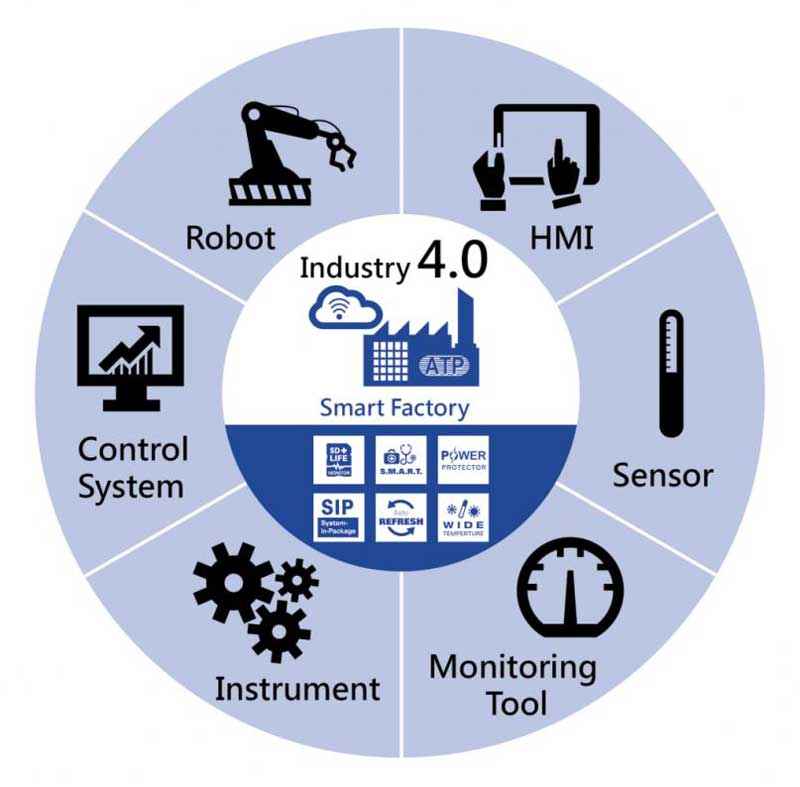
Industry 4.0 is going to change the way manufacturers operate their businesses. Originating in the high-tech manufacturing strategy group of the German government, Industry 4.0 is becoming a quasi-standard for future interconnectivity, machine learning and automation.
The overall idea is that machines and controls will come together with remotely connected equipment and humans in a progressively seamless manner. Industry 4.0 systems will incorporate transparent communication protocols and machine learning algorithms that can collect and analyze production data to improve efficiency, reduce maintenance requirements, support human activity and decentralize decision making. These systems will be able to learn and control work cells and production lines with very little input from human operators.
The Areas Industry 4.0 Touches Include:
- Work cells with robots, presses, and other auxiliary equipment all connected together
- Web service support
- MES collection of production data
- Smartphone apps to get production status or alerts
- Predictive-maintenance monitoring of cell equipment
- Production traceability
- Remote access and control
Delta T Systems Industrial Chillers are Industry 4.0 Ready!
The controllers on Delta T Systems chillers have up to 10 different analog input sensors, 2 digital inputs, 2 analog outputs, and 6 digital outputs. These are used to collect process conditions and adjust operating controls.
With integrated communication interfaces, Delta T Systems offers a wide range of open protocols including Modbus RS 485, Modbus IP, BACNet MSTP, and BACNet IP. These enable full work cell and wide area control network integration.
An important component of Industry 4.0 Delta T Systems’ controllers incorporate is cloud services which enable worldwide monitoring and supervisory control. Services such as unit monitoring, alarm monitoring, set point change, software upgrades and production data analysis are available via web pages or smartphone app.
Chiller controllers also offer adaptive control that uses the system’s pressures, temperatures, and compressor drive information to keep a chiller operating at its most efficient point while maintaining the predefined compressor operating parameters. This can reduce customer downtime should any of the parameters approach a fault condition.
Another Industry 4.0 feature Delta T Systems’ chillers incorporate is data logging. Controllers can store temperature and pressure data for up to 7 days. The resulting data files can be copied onto a USB for historical reference, transmitted to another device to assist with predictive maintenance, or used for production traceability by capturing data at the time of an alarm event.
Injection molding applications offer an excellent example of the way that Delta T Systems controllers offer full integration. When a new part is set up on a piece of molding equipment, parameters such as temperature or PID tuning related to the product is downloaded from the molding machine control to the chiller controller directly. Delta T Systems can open up such parameters to the customer as write values via the communication protocol.
Delta T Systems continues to lead the way in industry standards and will continue to evolve their entire product line including their water and oil temperature control units in order to serve new standards and best practices that arise.
